Away from home but not from war – the Ukrainian women forced to flee
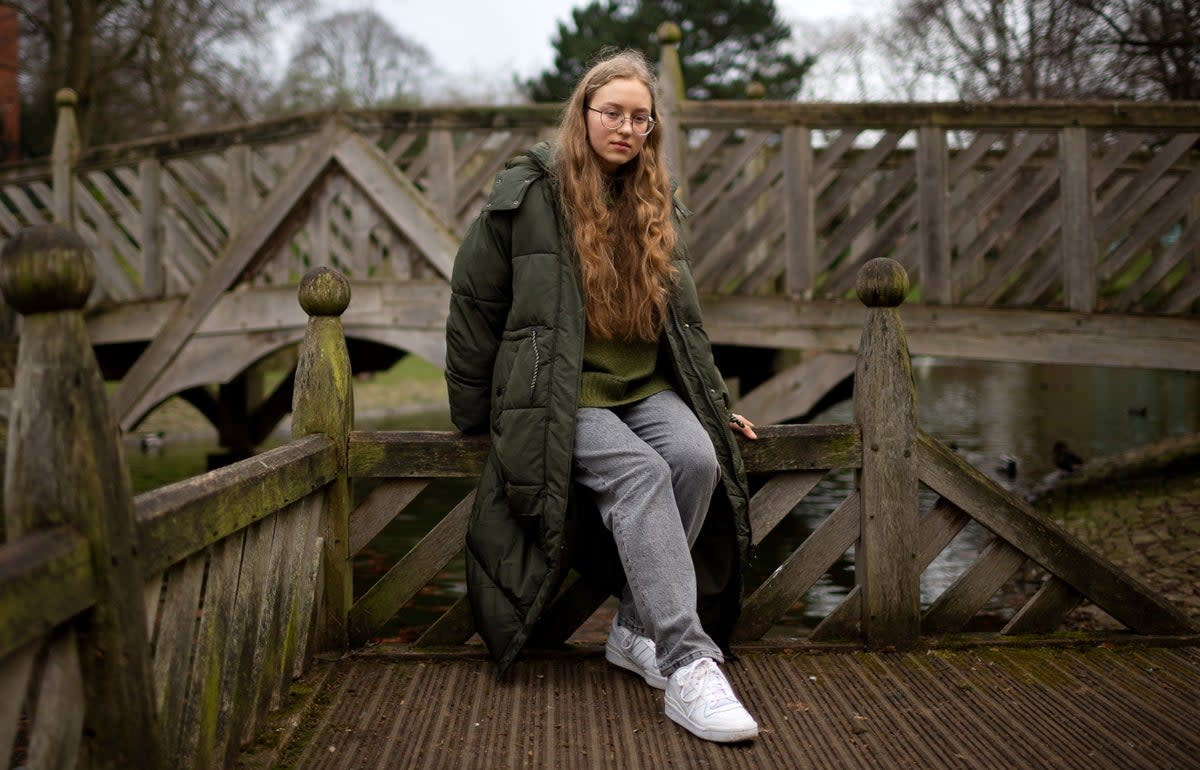
Nearly 8 million Ukrainians have fled their homeland since Russia launched a full-scale invasion of its neighbour on 24 February 2022. The majority of these refugees are women and children, as most Ukrainian men between the ages of 18 and 60 were ordered to stay and fight.
The following are accounts by women who have had their lives interrupted and been forced from their homes. They discuss how they think their country is coping as the war continues and what they think the future holds for them and for Ukraine.
Antonina and Ielyzaveta Smyrnova
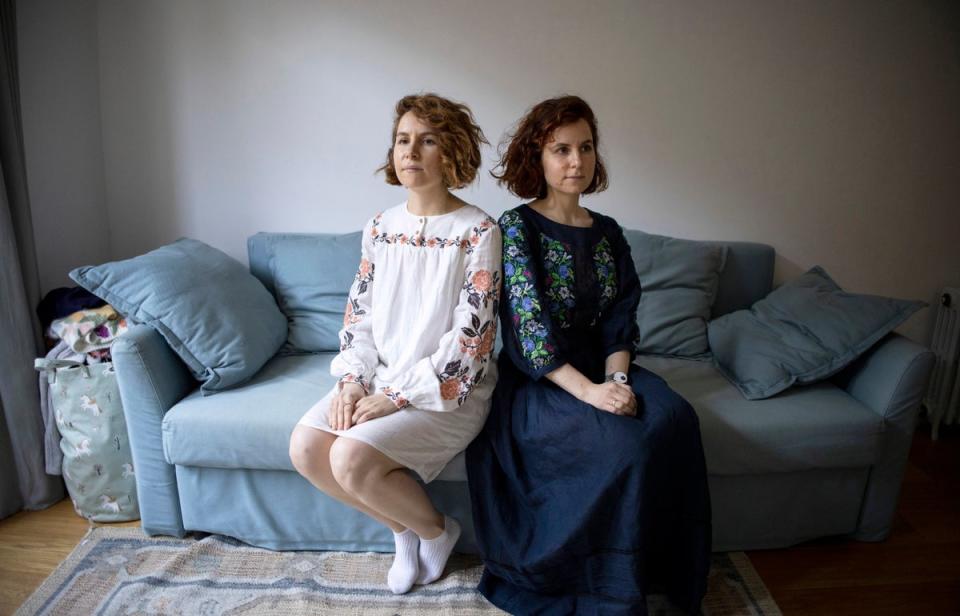
Antonina left Ukraine with her daughter due to the war to join her twin sister Ielyzaveta, who was already living in London. Antonina kept her job at a Kyiv-based IT company by remote working but she believes it will be hard to afford to rent a place for herself and her daughter when she moves out of her sister’s flat.
My life changed completely because of the war. I had to move from Kyiv and start a new life. “I liked my hometown, I liked my life, everything was perfect,” she says. “And now I need to start everything from the beginning. I would like this war to end as soon as possible and I would like to see my parents again.”
Image by Tolga Akmen
Svitlana Prokopenko
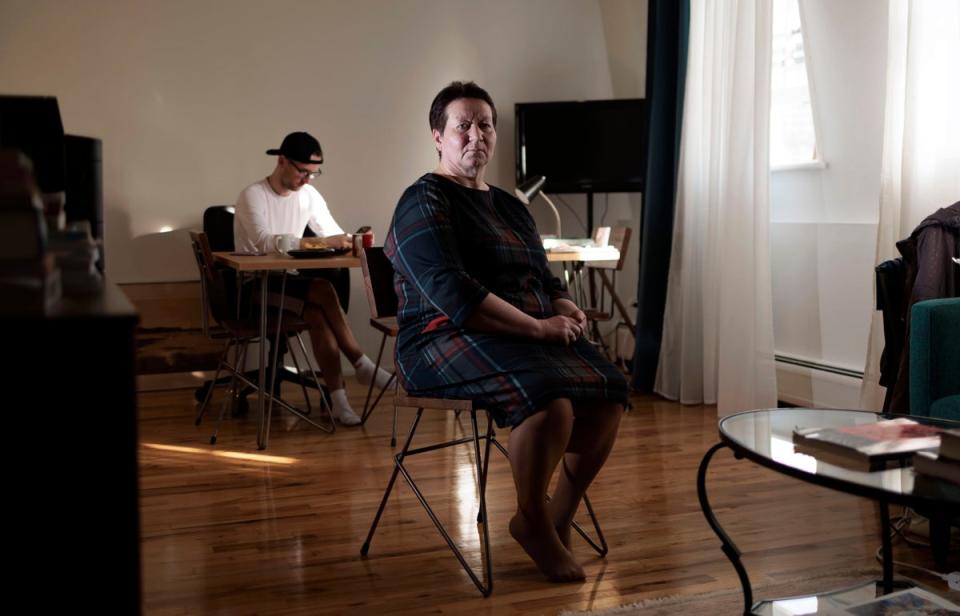
Svitlana arrived in the US in February to stay with her son after enduring nearly a year of fighting near her home in Borodyanka, much of which was destroyed when Russian forces tried to take Kyiv. “Life has changed. There is no peace in Ukraine,” she said.
Prokopenko and her husband Ivan, who stayed behind in Ukraine, were forced to find shelter for months at the start of the war in an abandoned house in the woods. When they returned home last summer their house had been ransacked by Russian soldiers and their town was badly damaged by shelling.
“When the war is over, we are thinking of returning to Ukraine,” she says. “I think that Ukraine must win. And then we will all be together again.”
Image by Justin Lane
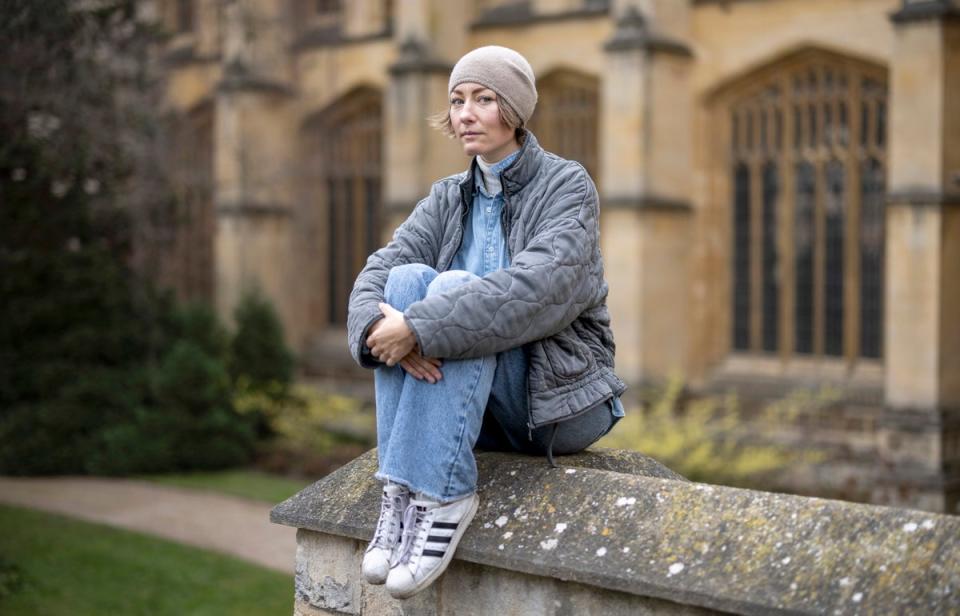
Daria Koltsova
Born in Kharkiv, near the Russian border, Daria fled from Odesa, where she had been living for the past few years before the onset of the war. While she is striving to live “a normal life” in her new home in Oxford, she says “it’s just impossible... when you feel that there’s so much pain at home”.
Despite the hardships, everyone is doing their best “to move forward” with their lives. “Even exhibitions are working in Ukraine now – without electricity, our businesses keep working.”
Image by Tolga Akmen
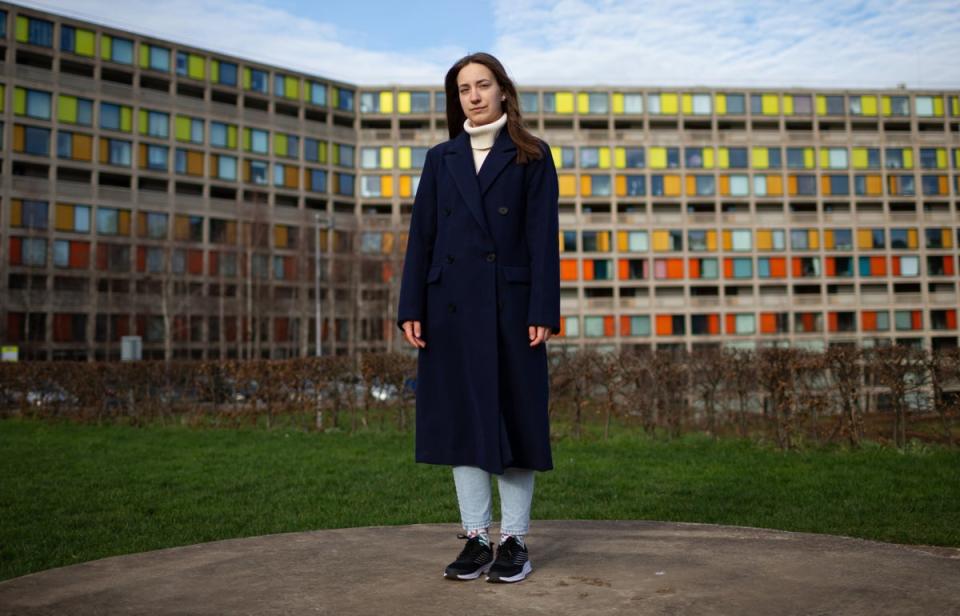
Alina Aleva
Like many other Ukrainians her age, the war has robbed Aline of part of her youth, forcing her to abandon university studies in Kyiv, where she lived with her mother, and “become independent”.
She said: “Now, I’m 21 and I have emigrated to another country, alone.” She cannot hide her anger at the “horrible” situation unfolding in her homeland because of the “terrible things” happening to her people. “I think Russia is a terrorist state,” she says.
Despite the destruction the invasion has brought, she is confident that with the support of many countries: “Ukraine will rebuild everything that was destroyed.”
Image by Adam Vaughan
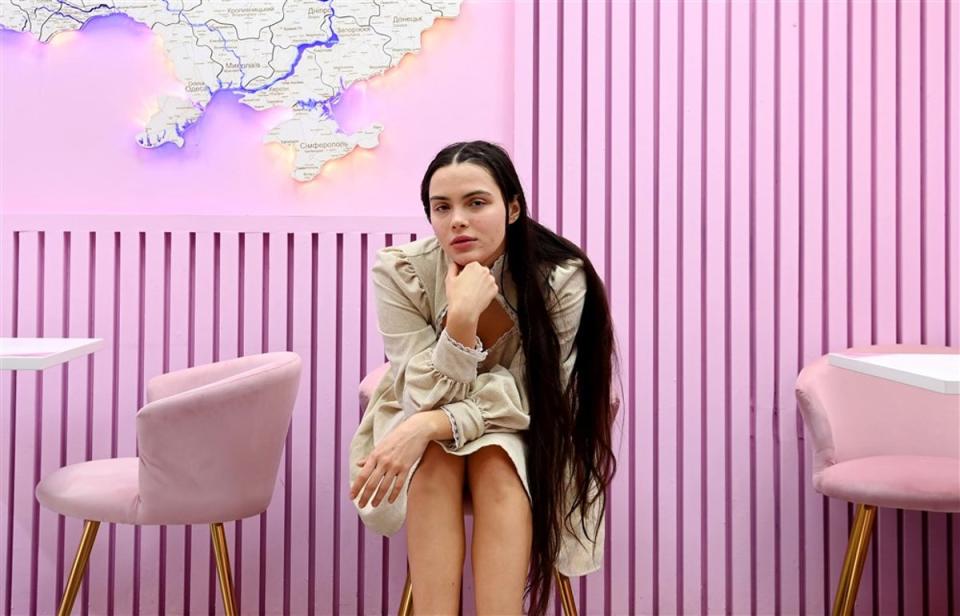
Yelyzaveta Tataryna
Lisa studied in Kyiv before the war broke out. She came to the UK, where she set up her cafe using investments from Ukrainian businessmen and help from fellow refugees.
Many of her family, including her mother, remain in Ukraine. She has not been able to see her brother or attend her grandmother’s funeral in the Crimean peninsula, which was annexed by Russia in 2014.
“It’s dangerous, you could have your home bombed every day. When you go to sleep, you wake and you think will I be alive or not?” she said. While she is now in “a safe place” running her own business, “there are a lot of people in Ukraine who are still in danger. So we just need help to finish this war as soon as possible.”
Image by Neil Hall
EPA


